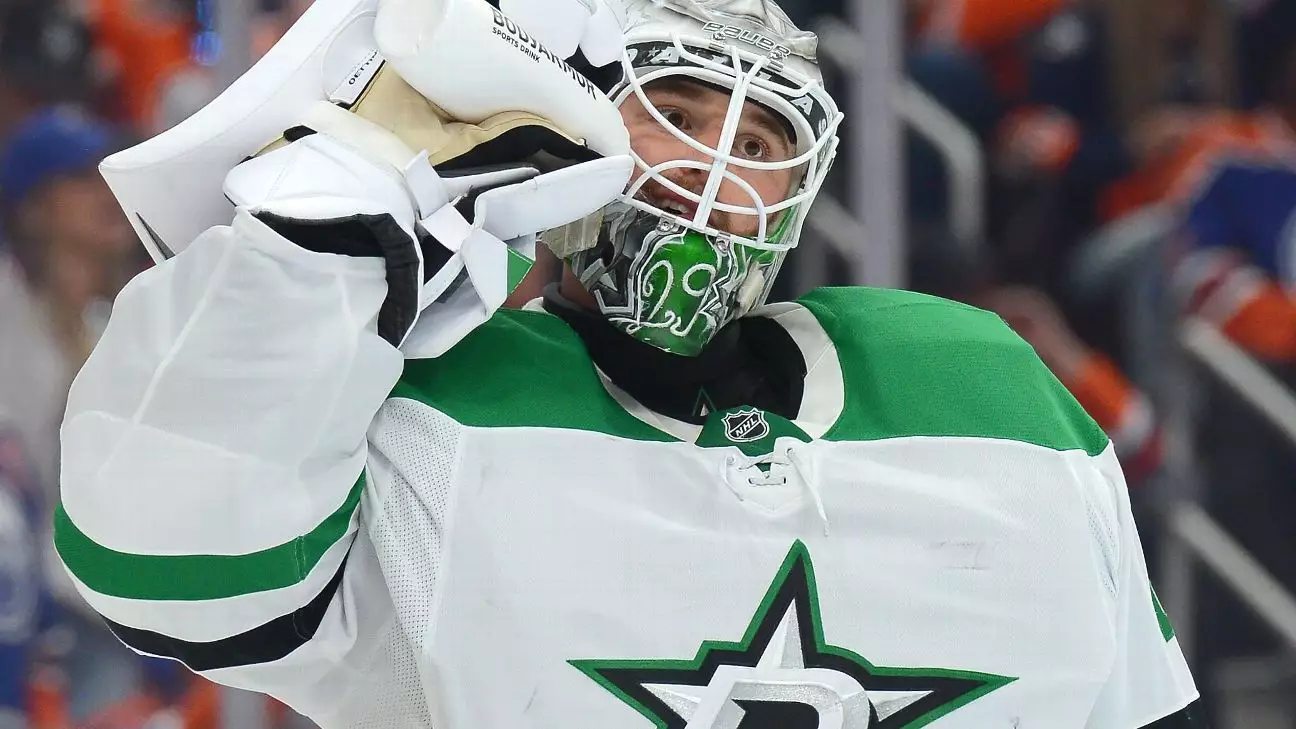Resilience in the Face of Adversity Jake Oettinger and the Dallas Stars Unfinished Journey
Playoff hockey is a realm where emotions run high, etching unforgettable moments in the hearts of players and fans alike. Recently, Jake Oettinger, the goaltender for the Dallas Stars, found himself at the epicenter of such a moment during the Western Conference finals. Being pulled from Game 5 after just over seven minutes was not only a shock to him but also to everyone invested in the team’s journey. Those two goals scored against him from the only two shots he faced became a symbolic punctuation of collective heartbreak. Oettinger described his feelings as “surprised and embarrassed,” carrying a weight that extended beyond personal accountability.
This decision wasn’t merely about Oettinger’s performance. It was Coach Peter DeBoer’s strategic choice amidst a high-pressure situation. His move, though drastic, aimed at salvaging both the game and the season for a team burdened by a history of near-misses in playoffs. As DeBoer candidly put it, “There’s one motive, and that’s how do we survive this.” This sentiment captures the essence of competitive sports—an unyielding quest for success that can often overshadow individual aspirations.
Key Takeaways
- Jake Oettinger’s early removal from Game 5 shocked both him and the Dallas Stars.
- Coach Peter DeBoer’s decision was driven by survival instincts in playoff pressures.
- Oettinger’s performance throughout the playoffs showcased his resilience despite setbacks.
- The coach-player dynamic is crucial in navigating high-stakes environments like NHL playoffs.
Statistical Narrative Excellence Amidst Adversity
Despite an abrupt end to his playoff run, Jake Oettinger’s overall performance paints a different picture. Throughout the postseason, he faced an immense workload, defending against 503 shots over 18 games—the most among all goaltenders. With a .905 save percentage and a 2.82 goals-against average, he demonstrated his potential despite not achieving playoff success. These stats reflect his resilience and ability, telling us that one game never fully encapsulates an athlete’s story. Oettinger’s capacity to handle pressure has been evident through four consecutive playoff appearances, guiding the Stars through successive series.
Looking ahead, Oettinger’s prospects are promising. As he gains recognition across the league, he stands on the brink of solidifying his place as a top-tier goaltender. Sports analyst Shannon O’Brien highlighted that goaltenders who consistently excel under playoff pressure often become integral to their franchise’s identity. While statistics suggest this path for Oettinger, transforming this potential into postseason victories will ultimately define his legacy.
The Symbiotic Relationship Coach and Goaltender
A key element of team dynamics lies in player-coach relationships, especially when stakes are high like in NHL playoffs. The current state between Oettinger and DeBoer calls for mutual respect and understanding amidst unspoken tension. Both men have shown diplomatic acknowledgment of each other’s roles post-season end. Oettinger has shown maturity by framing his experience as an opportunity for growth—a hallmark of a psychologically astute athlete who turns vulnerability into strength.
These interactions are critical as they dictate a player’s mental state moving forward. Coach DeBoer’s recognition of Oettinger’s performance hints at acknowledging both physical fatigue and mental strain. Despite Oettinger’s confidence in his physical health, he’s likely wrestling with mental challenges following such demanding seasons. The balance between mental resilience and physical stamina is vital in professional sports; how these figures navigate their relationship will greatly impact team morale and Oettinger’s athletic journey.

Looking Forward A Search for Redemption
The end of this postseason puts both the Dallas Stars organization and Jake Oettinger on the verge of transformation. The frustrations from past disappointments raise questions about their evolution moving forward. How will Oettinger channel this moment into improving his game? How will the team unite after another missed opportunity? These reflections transcend typical post-season queries—they are foundational questions that can inspire future growth and success.
The path ahead for both Oettinger and the Stars brims with potential for renewal and reinvigoration. His determination to refine his playoff experience is commendable; his aspiration to become one of the best underscores an understanding that athletic success isn’t linear. In sports, setbacks can reshape narratives constructively. The true measure of an athlete’s character emerges not just from triumphs but from overcoming challenges. As the Stars embark on their next chapter, lessons from this playoff run will resonate deeply within them, molding them into stronger contenders.
Final Thoughts
The journey of Jake Oettinger with the Dallas Stars during this playoff season reveals much about resilience in adversity. His experiences underscore how individual trials interweave with collective quests for success in sports’ intense world. As he reflects on these moments, there’s much to admire about his growth mindset and determination to rise above setbacks. For fans and aspiring athletes alike, his story serves as a testament to perseverance—a reminder that resilience isn’t merely enduring hardship but embracing it as a stepping stone toward greatness.
Jake Oettinger
Dallas Stars
NHL Playoffs
Sports Resilience


Leave a Reply